Happy Monday! Please give a hearty TMD welcome to our 2025 class of summer interns, some of whom will soon grace the virtual pages of this very newsletter. We’re thrilled to have Evan Spear, Owen Tilman, Angela Niederberger, Julian Hill, Rilla Haverdink, Wilson Bailey, and Maggie McGinnis aboard the skiff these next few months!
Quick Hits: Today’s Top Stories
- President Donald Trump on Saturday announced plans to deploy 2,000 members of the California National Guard to Los Angeles to crack down on protests and riots that began Friday in response to a series of Immigration and Customs Enforcement raids across the city. Local police officials said Sunday that more than two dozen people had been arrested in connection with the riots, including one assailant who allegedly injured three police officers by lobbing a Molotov cocktail at them and another who allegedly rammed a police line with a motorcycle. In a memorandum addressed to Defense Secretary Pete Hegseth ordering the activation, Trump cited a federal law allowing the president to summon a state’s National Guard when “there is a rebellion or danger of a rebellion against the authority of the Government of the United States,” which the memo said the Los Angeles “protests or acts of violence … constitute.” California Gov. Gavin Newsom responded to Hegseth in a letter on Sunday evening, requesting that the Trump administration rescind the deployment of National Guard troops and return them to Newsom’s command. “We didn’t have a problem until Trump got involved,” Newsom claimed. “This is a serious breach of state sovereignty—inflaming tensions while pulling resources from where they’re actually needed.”
- Russia targeted Ukraine’s second-largest city of Kharkiv with drones, missiles, and glide bombs on Saturday, killing four people and injuring more than 60, according to Ukrainian officials. Kharkiv Mayor Ihor Terekhov described the bombardment, which came in two waves, as “the most powerful attack since the start of the full-scale war.” One day earlier, Russia conducted aerial attacks across six Ukrainian territories, killing six people—including three emergency responders—and injuring 80 others. Meanwhile, Moscow accused Kyiv of stalling a 6,000-soldier prisoner exchange—a charge Ukrainian President Volodymyr Zelensky dismissed on Sunday as a “dirty political and information game.”
- Four Israel Defense Forces (IDF) soldiers were killed and five others injured on Friday after entering a building in southern Gaza that Hamas militants had rigged with explosives. According to an IDF spokesman, the troops were clearing a Hamas compound when a bomb detonated and collapsed the building. The IDF has publicly identified the four fallen soldiers, whose ages ranged from 19 to 33 years old, and added that the military plans to investigate the incident further after completing an initial probe. Meanwhile, a Hamas spokesperson responded, saying Israel must stop the war or “prepare to receive more of their sons in coffins.”
- Attorney General Pam Bondi said Friday that Kilmar Abrego Garcia, the El Salvadoran man who the U.S. deported in March in an incident officials described as an “administrative error,” had returned to the U.S. and will face federal human trafficking charges. An indictment unsealed Friday alleges that Abrego Garcia and co-conspirators “unlawfully transported” thousands of illegal immigrants, including “MS-13 members and associates,” and worked with “transnational criminal organizations.” The Trump administration has previously alleged that Garcia was an MS-13 member, which his family denied. Garcia, whose attorney called the charges “an abuse of power,” appeared in a Tennessee court on Friday, where a federal magistrate judge set a hearing for June 13. ABC News reported Friday that Ben Schrader, a “high-ranking federal prosecutor” in Tennessee, resigned as a result of the case against Garcia, concerned that it was “being pursued for political reasons.”
- A federal appeals court on Friday reinstated most of President Trump’s ban blocking the Associated Press (AP) news agency from accessing the Oval Office, Air Force One, Mar-a-Lago, and White House events, ruling that those “restricted presidential spaces are not First Amendment fora opened for private speech and discussion.” However, the court’s ruling required the administration to offer the news group access to events held in larger spaces, including the White House’s East Room. The AP sued Trump in February, and, in April, District Judge Trevor McFadden issued a preliminary injunction temporarily blocking Trump’s ban from taking effect until the full merits of the case are heard. Friday’s ruling reversed most of McFadden’s injunction.
- The Bureau of Labor Statistics reported Friday that U.S. employers added 139,000 jobs in May, down from 147,000 in April but exceeding economists’ expectations. The unemployment rate held steady at 4.2 percent, while the labor force participation rate dropped slightly from 62.6 to 62.4 percent. U.S. Treasury yields ticked upwards on Friday following the jobs report release.
- The 78th Tony Awards were held on Sunday at Radio City Music Hall in Manhattan, with “Maybe Happy Ending” winning Best New Musical and “Purpose” winning Best New Play. Sarah Snook of Succession fame won Best Leading Actress in a Play for her work in “The Picture of Dorian Gray,” while Nicole Scherzinger of “Sunset Boulevard” secured Best Leading Actress in a Musical.
Goodbye, Greta
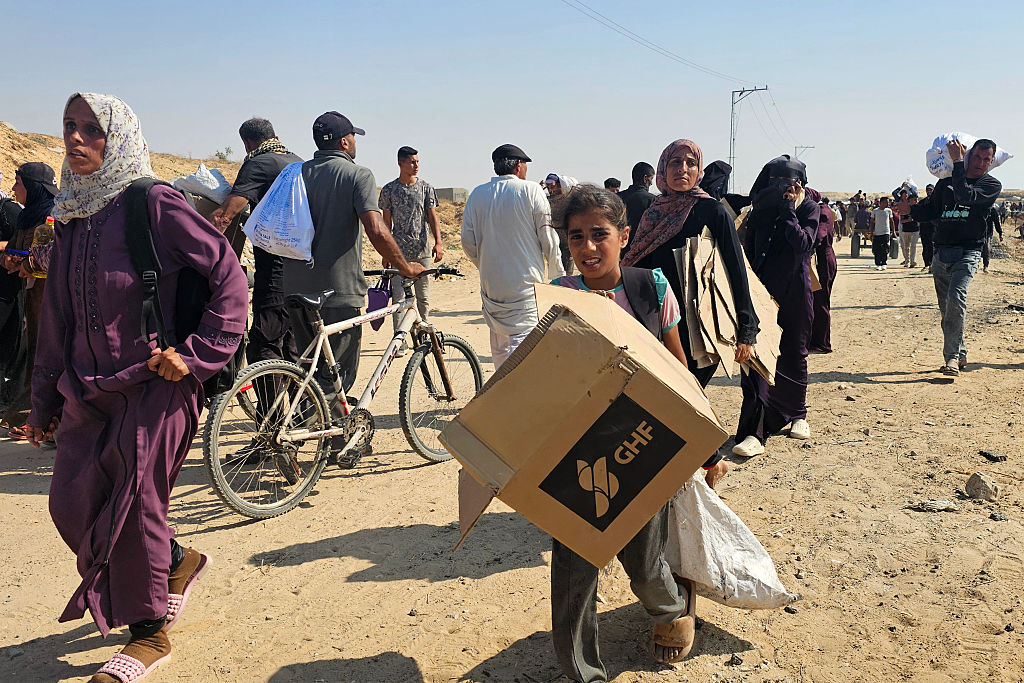
More than 17,000 boxes of food reached Gazans in need on Sunday, but it wasn’t aboard a 22-year-old Swedish activist’s “freedom flotilla.” Israel intercepted the British-flagged yacht carrying Greta Thunberg and other anti-Israel demonstrators off the Mediterranean coast early this morning, announcing plans to send its passengers safely back to their home countries.
“There are ways to deliver aid to the Gaza Strip — they do not involve Instagram selfies,” the Israeli Foreign Ministry said in a statement. “The tiny amount of aid that was on the yacht and not consumed by the ‘celebrities’ will be transferred to Gaza through real humanitarian channels.”
The meals were instead doled out by the Gaza Humanitarian Foundation (GHF), a newly formed group with shadowy origins and reported Israeli backing. The initiative, which seeks to cut Hamas out of the aid distribution process, comes amid a renewed effort by Israel to break the terrorist group’s grip on power in the Gaza Strip. But recent security incidents near aid centers have underscored the difficulties of getting vital supplies directly into the hands of Palestinian civilians.
The GHF began operating in the Gaza Strip late last month, opening a small number of aid hubs run in coordination with local contractors and secured from afar by the IDF. But the initiative has faced its fair share of early challenges: Hamas has accused Israeli forces of killing scores of Gazans near the distribution sites on at least three occasions since May 27. (The IDF has confirmed that soldiers fired warning shots at individuals approaching military positions and is investigating the claims, but denied Hamas’ casualty count.)
Meanwhile, both overcrowding and security concerns have forced the group to intermittently pause its operations. On Saturday, a spokesperson for the GHF said it was unable to open aid distribution sites due to Hamas threats to its staff. “Hamas is the reason hundreds of thousands of hungry Gazans were not fed today,” the spokesperson said. “The group issued direct threats against GHF operations. These threats made it impossible to proceed today without putting innocent lives at risk.”
Israel has long accused Hamas of diverting food and other supplies to solidify its control over the Gaza Strip, both by doling out aid to civilians directly and by selling it to merchants for a large markup. But the latest initiative, which cuts the United Nations out of the aid distribution process, also seeks to remove Hamas. “Hamas is doing everything it can to undermine this,” Lazar Berman, a Jerusalem-based analyst and diplomatic correspondent for the Times of Israel, told TMD. “So some of it is working through messaging and the international media to try to undermine the [organization’s] legitimacy, but it is also threatening Gazans … to keep them from participating and cooperating with the GHF initiative.”
Chuck Freilich, Israel’s former deputy national security adviser, agreed. “Part of the problem is that Hamas doesn’t want anybody else to distribute the aid,” he told TMD. “They’re afraid that if somebody else can take over the distribution of food or humanitarian aid in general, it will lead to a loosening of their control and enable Israel to achieve one of its fundamental objectives of the war, which is to weaken their political control and even topple them.”
But the U.N. and other international humanitarian organizations have also opposed aid distribution efforts by the GHF, accusing the group of lacking neutrality. And despite the Israeli government publicly denying its support for the foundation, unnamed officials recently told Kan News, Israel’s state broadcaster, that Jerusalem quietly designated some $280 million to the initiative last month. Meanwhile, the U.S. State Department is reportedly considering providing $500 million to the organization.
The new program came in response to Israeli accusations that the U.N. has, throughout the war, allowed Hamas to divert aid shipments and make millions of dollars by stealing, taxing, and reselling them. Those revenues are, in turn, according to Israeli assessments, used to fund Hamas’ military wing, primarily by allowing it to recruit new fighters and replenish its severely depleted ranks. Jerusalem now sees depriving Hamas of its aid distribution role as key to its main war objectives: destroying the group as a military and governing entity in the Gaza Strip.
“You have a population that doesn’t have food security, so aid is a substantial part of what’s happening in Gaza right now. And we also need to take into account that much of the limited economy that Gaza had before the war doesn’t exist anymore, so it doesn’t produce to begin with. Controlling aid is controlling Gaza,” Nadav Eyal, a prominent Israeli political commentator and journalist, told TMD. “In the end, what became clear is that as long as the aid is controlled by Hamas, there’s no way that the Hamas budget would collapse. And as long as they are the main financier or the main holder of wealth in the Gaza Strip, they will always be able to pay young people salaries to fight for them.”
But getting aid directly to Gazan civilians comes with a particular set of challenges, and past Israeli initiatives have largely failed. Gaza is a “unique battlefield in that its defenses were built up by a terrorist army for 17 years,” Berman noted. “It’s dense, it’s dangerous, there are booby traps everywhere, there are tunnels everywhere.” The challenges of operating in a complex urban environment were underscored on Friday morning, when four Israeli troops were killed after entering a booby-trapped building near the southern city of Khan Younis.
And for now, the war shows no signs of slowing. Late last month, Hamas rejected an Israeli-backed U.S. proposal for the return of 10 living and 18 murdered hostages in exchange for the release of Palestinian prisoners and a 60-day ceasefire. “I received the Hamas response to the United States’ proposal,” U.S. special envoy to the Middle East Steve Witkoff said at the time. “It is totally unacceptable and only takes us backward.”
Throughout the war, Hamas has insisted on a full Israeli withdrawal and a permanent end to the war—a condition that would leave the battered group in power after more than 20 months of fighting. But Israel is now looking to other Palestinian factions to serve as a counter to Hamas in the Gaza Strip. On Thursday, Israeli Prime Minister Benjamin Netanyahu said that Israel has supported anti-Hamas clans in the enclave. The local militias reportedly include the Popular Forces, a group headed by Bedouin leader Yasser Abu Shabab. Despite being small in size, the faction represents “the most successful attempt by the Israelis up to now to create some local power sources that are actually Palestinian and are armed, and are not the [Palestinian Authority] or Hamas,” Eyal said.
Together with the new aid distribution system and recent waves of anti-Hamas protests in the enclave, there are modest early signs of “the fracturing of Hamas’ grip on Palestinian society in the Gaza Strip,” Eyal added. “Hamas still holds control of the Palestinian population in general, but we are seeing that its grip is being loosened.”
Today’s Must-Read

Why the Republic Remains
Toeing the Company Line
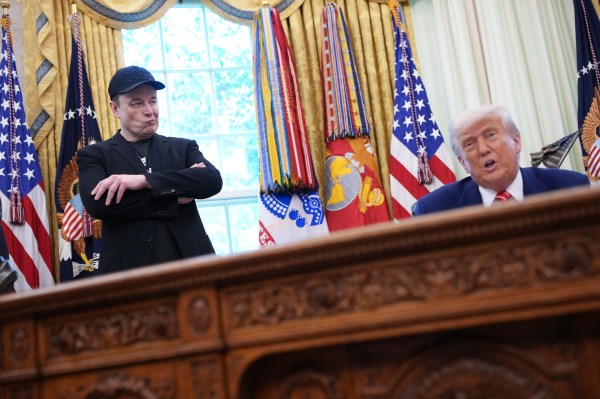

The Inevitable Splintering to Come

Why Are Billions of Muslims Celebrating the ‘Feast of Sacrifice’?

What Matt Walsh Gets Wrong About Marriage

Who Can Speak for the Silent?



Can Anyone Save the Democrats?
Worth Your Time
- For Reason magazine, Eric Boehm spoke to David Levi, whose small business, Microkits, is a plaintiff in the Liberty Justice Center’s lawsuit challenging the Trump administration’s tariffs. “Even after scoring a huge victory against President Donald Trump’s tariffs in federal court last week, David Levi still isn’t sure if his small business will survive the trade war,” he wrote. “‘It’s just been exhausting how uncertain it is,’ Levi, who started MicroKits in 2020 to get more kids interested in the hands-on science of electrical engineering, tells Reason.” Levi’s business model relies on imports. “For example, a kit that teaches kids how to build a small theremin requires a circuit board, resistors, capacitors, bits of wire, and plastic molding to hold batteries and other pieces in place. ‘I don’t have millions and millions of dollars to spin up my own circuit board assembly line, and plastic mold injection, and everything,’ Levi says. … ‘It’s not a question of, ‘Oh do you build the kits entirely in America or with international parts?’” Levi says. ‘It’s a question of do you build the kits with international parts versus you don’t build these science kits at all.’”
- Russian dictator Vladimir Putin is prepping a summer offensive against Ukraine, The Economist wrote in an alarming new report. “In the last two weeks there have been record-breaking Russian missile strikes on Ukrainian cities and spectacular Ukrainian drone raids on Russia’s strategic bomber force, deep inside its borders. But all this is merely a prelude to the main event: a large-scale summer offensive by Russia that aims to break Ukrainian morale and deliver president Vladimir Putin a symbolic victory at almost any cost,” the team wrote. “Dmitry Kirdayapkin, the police chief, morbidly calls the coming assault an ‘arc of Russian love.’ He knows the Russian drill well by now: death, demolish, repeat.’ … The front lines have not shifted in Russia’s favour in any strategically significant way for three years. But Ukrainian sources claim that captured Russian officers tell them the summer campaign is being presented as ‘one last push’, to break Ukraine’s morale.”
Presented Without Comment
Reuters: Proud Boys Leaders Seek $100 Million Over Jan. 6 Prosecutions
Also Presented Without Comment
The Hill: Trump: ‘I’m Not Even Thinking About Elon’
In the Zeitgeist
Spanish tennis star Carlos Alcaraz won the French Open final on Sunday, securing his fifth major title. Check out the moment the 22-year-old clinched his victory over Italy’s Jannik Sinner, the top-seeded player in the tournament.
Let Us Know
Are you optimistic about the new initiative to bring food and other supplies into Gaza?


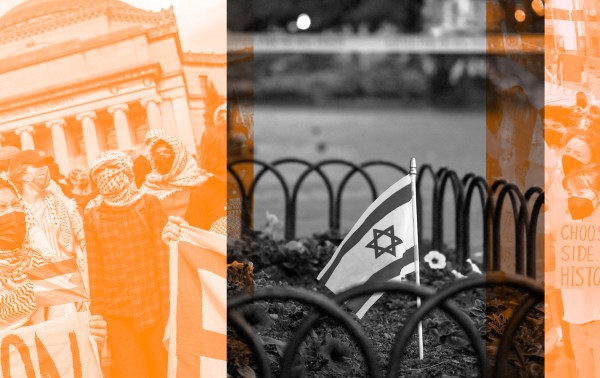
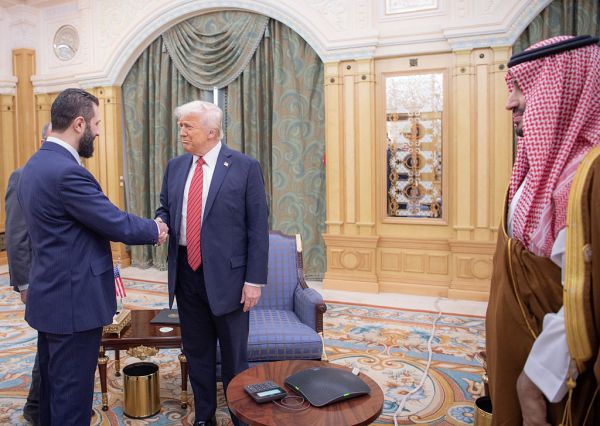




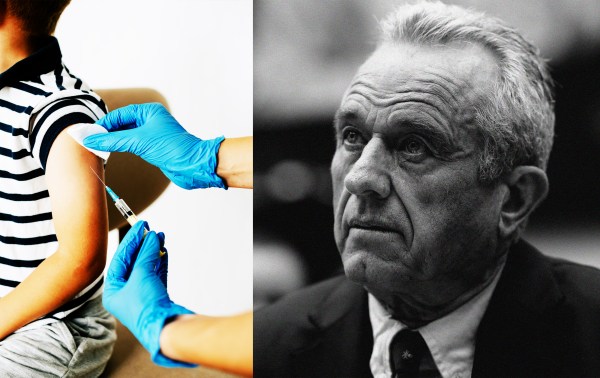

Please note that we at The Dispatch hold ourselves, our work, and our commenters to a higher standard than other places on the internet. We welcome comments that foster genuine debate or discussion—including comments critical of us or our work—but responses that include ad hominem attacks on fellow Dispatch members or are intended to stoke fear and anger may be moderated.
With your membership, you only have the ability to comment on The Morning Dispatch articles. Consider upgrading to join the conversation everywhere.